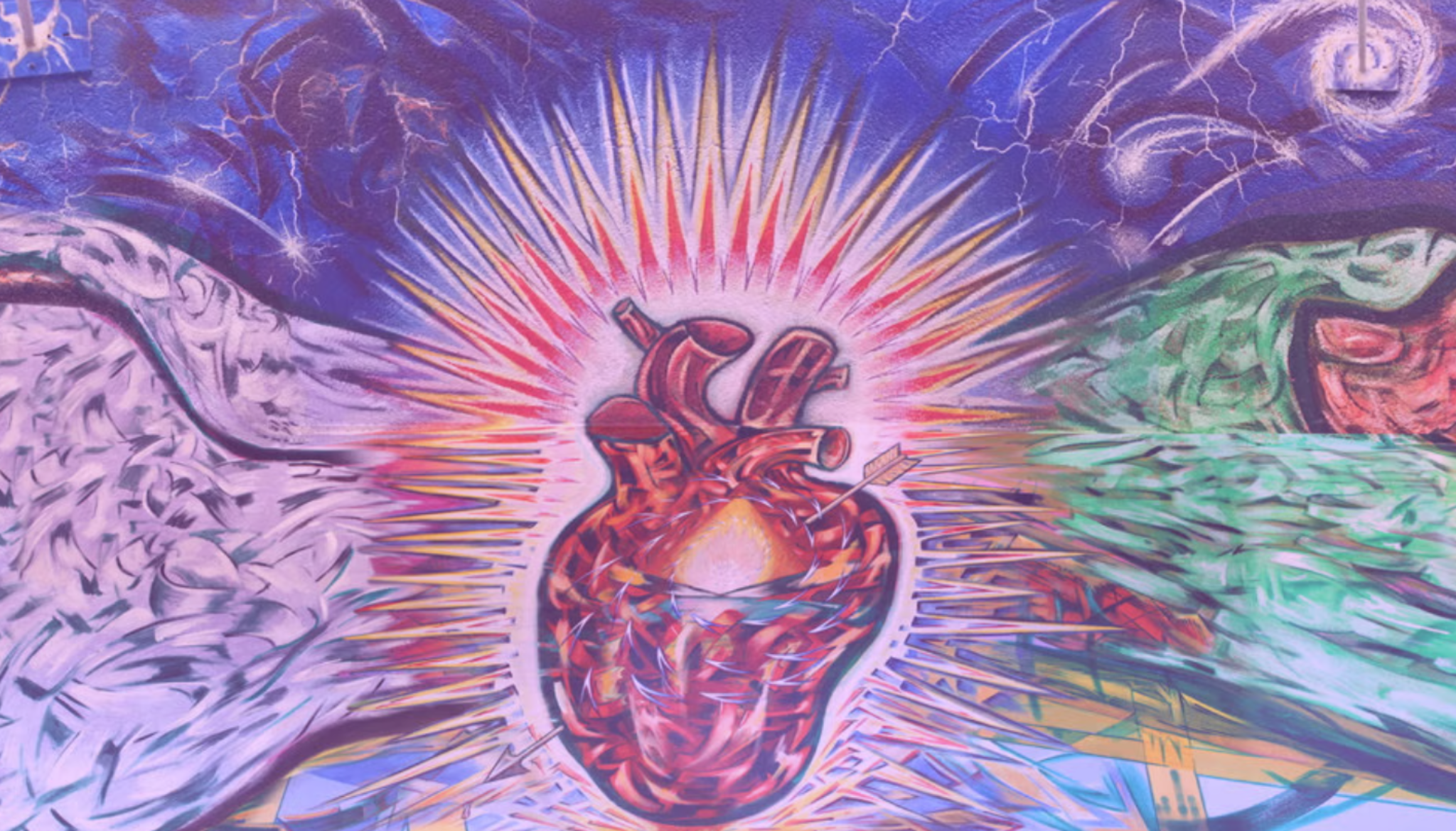Grief in Recovery: Honoring the Dead Without Hardening the Heart
“El Corazón" photo courtesy of the The Rafael Cintrón Ortiz Latino Cultural Center at UIC
In Western society, grief is an awkward guest. We’re told to nod politely, send flowers and move on before the discomfort lingers too long. Funerals are brief, condolences are perfunctory and mourning is a private affair—something to be managed, not shared. The emotional tidal wave that follows loss is rarely given the space it demands.
In recovery spaces, grief is no less present—if anything, it’s amplified. Those healing from addiction walk alongside loss more often than most: friends gone too soon to overdose, to suicide, to the lingering effects of past years. This grief is heavy, and when left unspoken, it can pull us back toward the very coping mechanisms we’re trying to leave behind. Yet some addiction and recovery communities have learned to face this grief head-on—with words and practices that transform pain into purpose.
Turning Loss Into Life
In my recovery community, we hold onto a simple and powerful mantra:
“We honor our beloved dead best by learning to better live.” - Julia M. Hayes
When a friend or family member dies—whether by overdose, suicide, illness, or age—we don’t minimize their life or sanitize their death. We say their names. We tell their stories, even the messy ones. We allow love to live right alongside the pain.
This mantra not only provides comfort, it’s also a call to live so vividly that those we’ve lost would lean in to watch.
When grief is held collectively, it transforms—turning what once crushed us into the very strength that carries us.
Some Language Hurts Instead of Heals
Not all recovery communities embrace this openness. In some traditional 12-step meetings, there’s an old saying passed around when someone dies: “Recovery is possible, but sometimes you have to step over dead bodies to get there.”
It’s meant to encourage self-preservation and to remind people to stay the course no matter what. But the image is brutal. When I first heard it, I imagined literally stepping over the bodies of people I loved. It scared me—and it certainly did not inspire my sobriety. It felt like a command to harden my heart when what I needed was to let it break.
The Unspoken Weight of Grief in Recovery
For people healing from addiction, grief comes in layers. Yes, we grieve friends, but we also grieve past versions of ourselves, relationships tied to using, and even the imagined futures that addiction stole. The stigma surrounding overdose or suicide only deepens the wound. These losses are often whispered about, softened with euphemisms, as if naming the truth would make it worse.
The Western cultural norms, even in most traditional recovery circles, does a great dishonor to the reality of what we go through. And it can be dangerous—when grief is buried, it can pull us back into old coping mechanisms. All recovery spaces should be places where grief is held, not hidden.
The Rituals We’ve Lost and Need to Regain
Western culture has stripped grief of its rituals. Other cultures wail, drum, sing, wear black for a year, or hold story circles for nights on end. We push grief into corners, treating it like a personal weakness instead of a shared human experience.
Recovery communities have the chance to bring ritual back. Lighting candles at the start of a meeting, creating memorial altars, saying the names of those we’ve lost outloud—these small acts give grief a container. They remind us that mourning is so much more than our pain; it’s also about love.
It shouldn’t be taboo to say out-loud that this person mattered in life—and that their death does nothing to change that.
Living Fully as Resistance
In a world that would rather numb pain or skip past it, choosing to live fully after loss and feeling deeply is a radical act. It can be a skill that empowers us, especially for people in recovery. We can choose to let grief break us open instead of breaking us down.
The people we’ve lost don’t get to live their lives anymore—but we do. We honor them not by hardening ourselves but by opening wide. By laughing, crying, creating, connecting.
We honor them by making something of the one precious life we have left.

